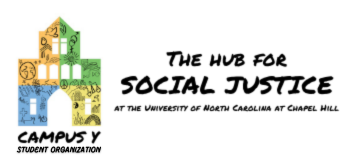
How to (Not) Change the World in Five Months
May 20, 2016 • Tom Sowders • No CommentsBy GGY Fellow Parker Vige.
I leave Budapest in five days. That’s one more day than four, and one less day than six. It seems to be such simple math, yet why can’t I understand it? I was suppose to live and work in this beautiful ‘Paris of the East’ for fives months, but where have the elusive months gone? If I’m counting correctly, I arrived in the city to enjoy Christmas holidays in December — 1 month. Then January rolled around and I was still here — 2. Of course February soon followed — 3 —and then March — 4. We just came out of April, so I suppose I can count that month now as well — 5. Oh. 5 months.
Thinking of my time working with DIA in Hungary it seems to be only a few weeks, but as I reflect back on my experiences it seems I’ve lived a lifetime. Humor me as I do my best to articulate such depth and breath of experiences in a manageable and digestible blog post.
First, we must understand the current political and social atmospheres in Hungary. The government regime in power was voted in with a certain majority, which according to law, allows them to make decisions without oversight, which they would otherwise be restricted from making.
In specific circles (increasing in quantity daily) the prime minister is quickly dismissed as a dictator taking advantage of such system. Within the past five years Hungary has seen the government centralize the education system, exercise blatant nepotism, control all shops authorized to sell Tobacco, encourage prejudice against refugees, and neglect the communities which lie outside of the capital city.
Specifically, the decision made in education has come under immense fire in recent years by different NGOs and social activism campaigns, DIA included. In the system of today the Hungarian government designs and implements the content of all textbooks and curricula. The new system is oddly reminiscent to the era of communism in that critical and creative thinking skills are second-class concerns when pitted against science and math. The government has even gone so far as to require all high-school students to complete compulsory ‘service-learning’ activities without so much as an explanation.
To the untrained American eye it seems to be a very prudent idea to require community service from students. I thought the same. Then one begins to realize that only a few of decades ago the same system required students to work for free in factories to “stimulate the economy” during what was called Communist Saturdays. The only difference now is the system operates under the guise of a forward-thinking, quasi-progressive pedagogical tool.
My daily work in Hungary was an effort to combat such a damaging program. My organization worked to educate students on their responsibilities as citizens in a Democracy including teaching debate skills, encouraging them to participate in political activism, and cultivating empathy in the current generation. I worked with a doctoral student to develop a survey for assessing teachers’ understanding of democracy and their perspectives regarding the new system. We are still in the process of collecting data and articulating it into consumable information. My goal is, come August, I will have completed my research article on the current system and how the post-communist sentiments worked as a catalyst to create it.
If the last paragraph caused a bit of a headache, don’t worry. I’m right there with you. It hasn’t been an easy process and it doesn’t seem to be getting easier. As I begin my travels I remain in contact with DIA as we continue the project. If we do our job well, we may add another drop in the bucket of political and social reform in Hungary.

